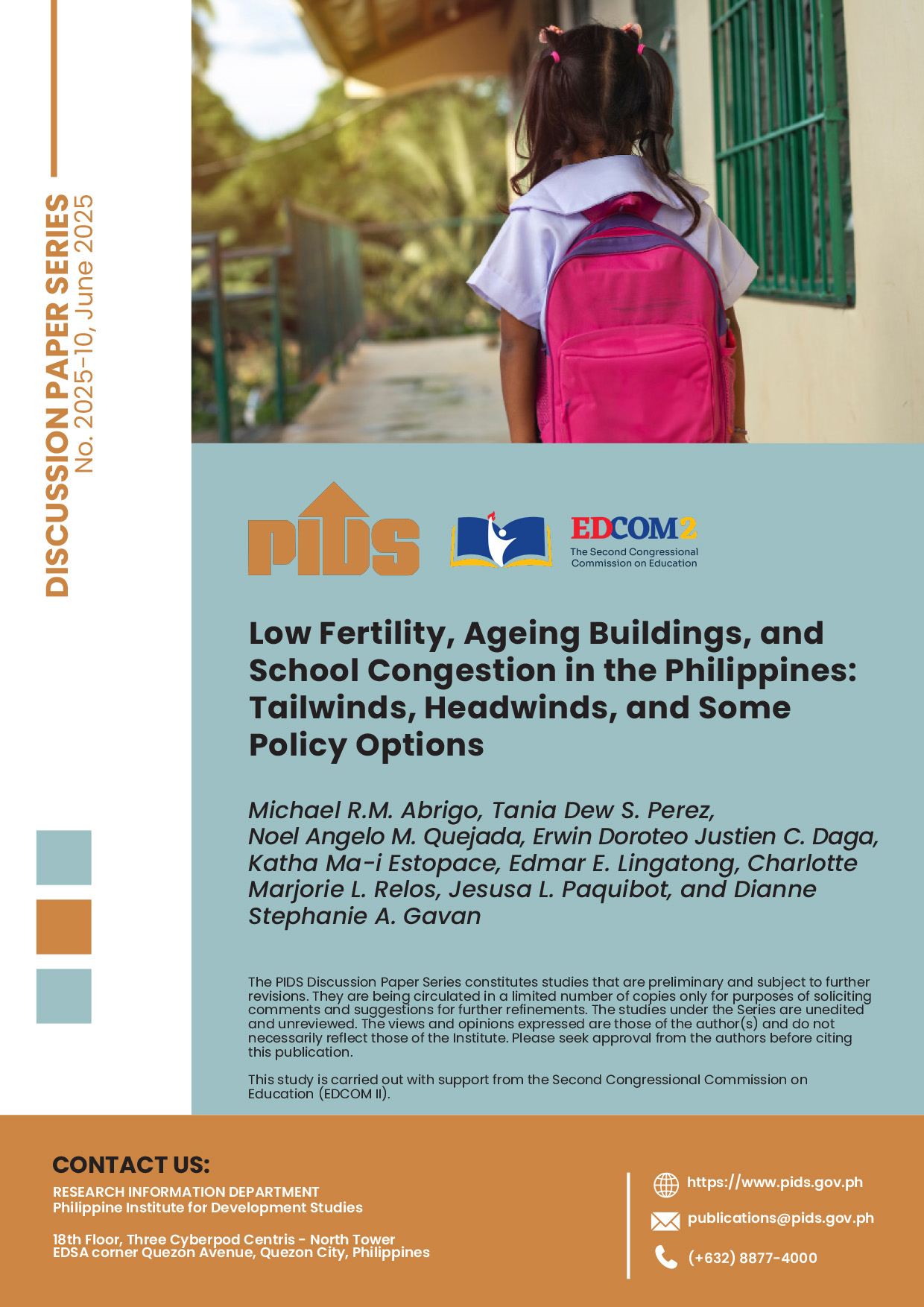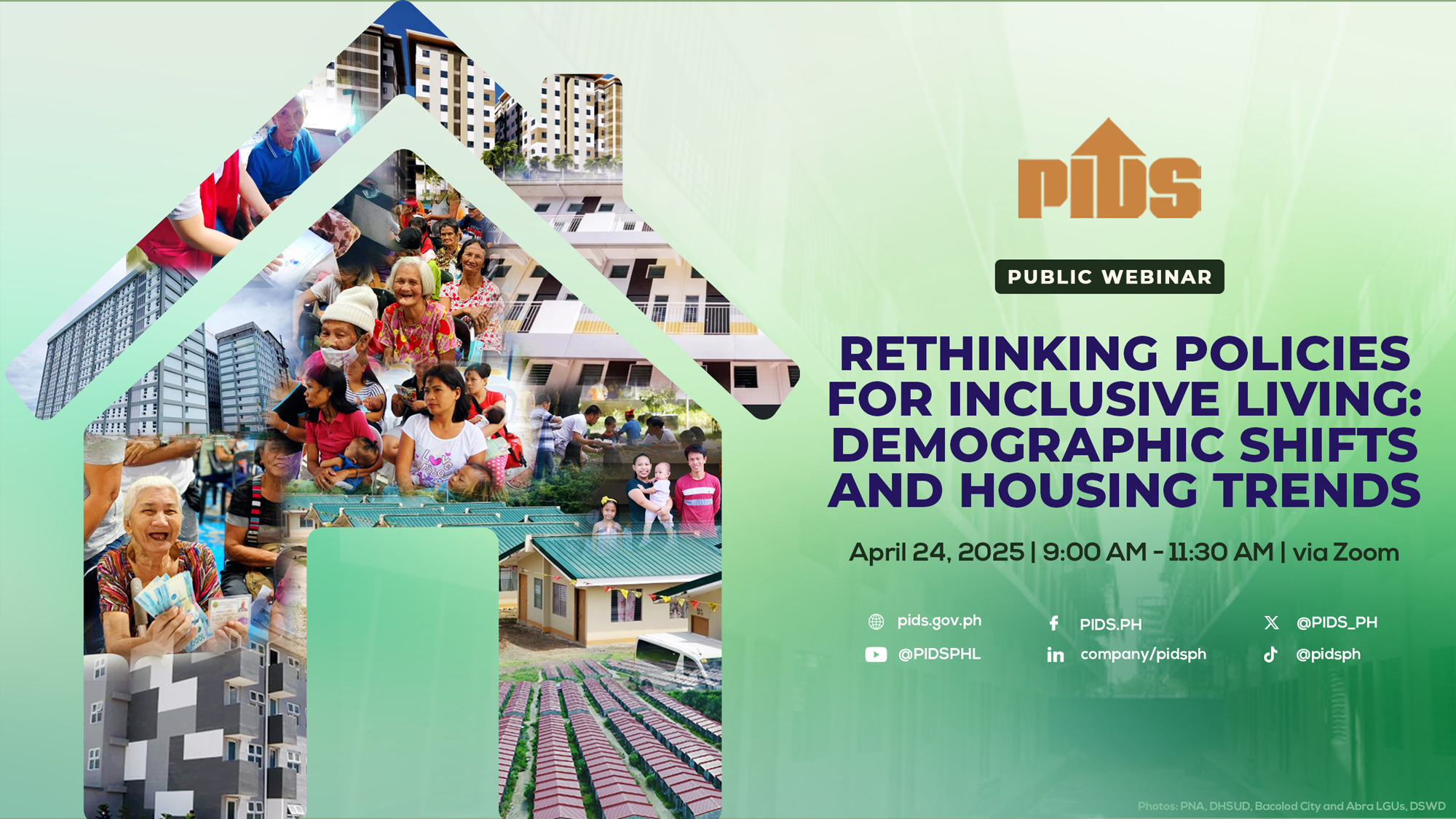
With tepid output growth over the years, the agricultural sector now accounts for just above a tenth of gross domestic product. About 32 percent of the ranks of the employed work in agriculture, forestry and hunting, and fishing. The poor can mostly be found in the rural areas working in these low-skilled, low-productivity, and low-income jobs, as PIDS research has shown. Evidence-based policies are needed to boost agricultural productivity and help reduce the ranks of the poor.
PIDS has done extensive work in agricultural policy research, in support of the government's goal of making growth more inclusive. A recent paper by PIDS Senior Research Fellow Roehlano Briones argues that the agricultural and rural economy should be at the "forefront, rather than periphery, of the country's strategy for quality employment generation." This can be achieved, he said, by enabling a structural transformation in agriculture, by shifting to high-value crops, which are more profitable than traditional crops such as rice and corn.
Agricultural diversification can increase agricultural productivity and raise farm incomes, enabling farm households to invest in health and education. However, this transformation requires rapid technological change and improved rural infrastructure, which clearly call for increased investments in infrastructure as well as in agricultural research and development (R&D), an area where the Philippines lags behind its neighbors. But it is not enough to just hike state expenditures in agriculture, which have in fact grown in recent years. Faulty design and execution of programs are partly to blame for the disappointing performance of the agricultural sector, PIDS has found. The recommendation is to veer away from input subsidies and similar production support (audit reports of which have shown leakages and other anomalies) and focus on public goods with evidence of impact, such as roads, airports, electrification, regulatory services, and R&D for technological change and agricultural modernization.
Check out PIDS research on agricultural policy, including impact assessments and case studies. You may access these studies via the SocioEconomic Research Portal for the Philippines by simply typing 'agriculture' in the Search box.
Urgent: A road map for agro-industrial development in the Philippines
Agriculture, Rural Employment, and Inclusive Growth
Impact Assessment of the Agricultural Production Support Services of the DA on the Income of Poor Farmers/Fisherfolk: Review of the Evidence
Assessment of Prospective Impact of Fruits and Vegetables Research at the Industry Level in the Philippines: the Case of the ACIAR-PCAARRD Horticulture Project
The Structure of Agricultural Trade Industry in Developing Countries
Market Structure and Distribution of Benefits from Agricultural Exports: The Case of the Philippine Mango Industry
Addressing Land Degradation: Benefits, Costs, and Policy Directions
What's in store for AFNR graduates in the Philippines?
Poverty and Agriculture in the Philippines: Trends in Income Poverty and Distribution












